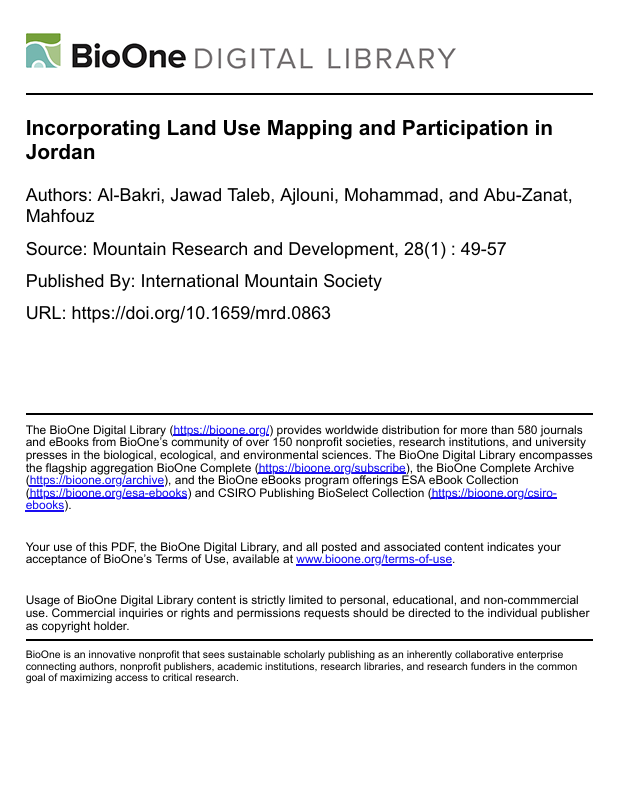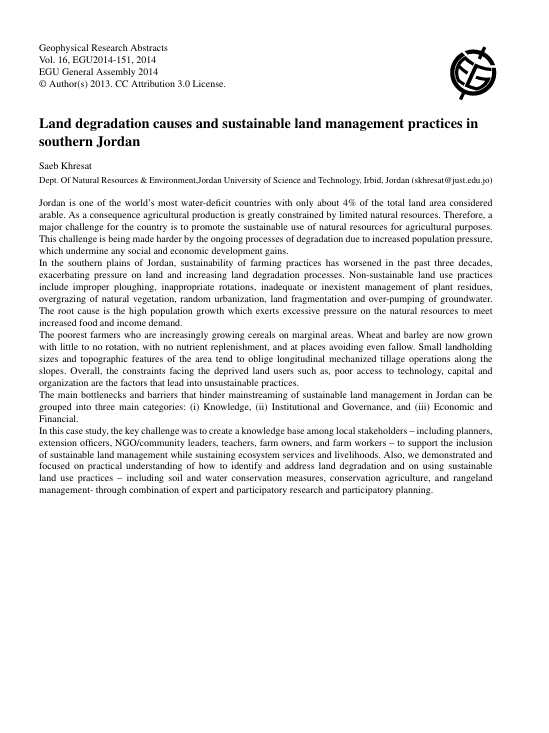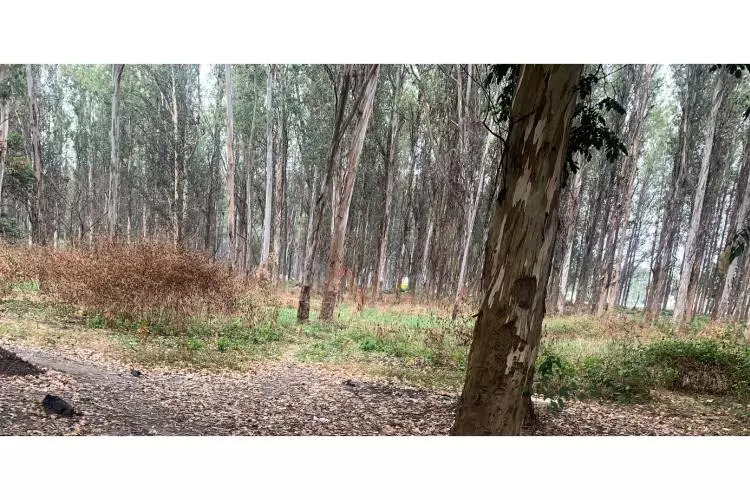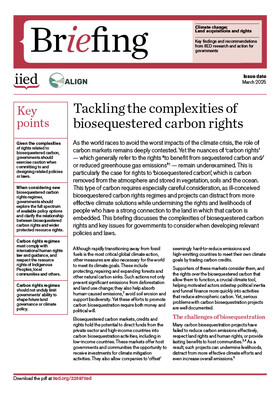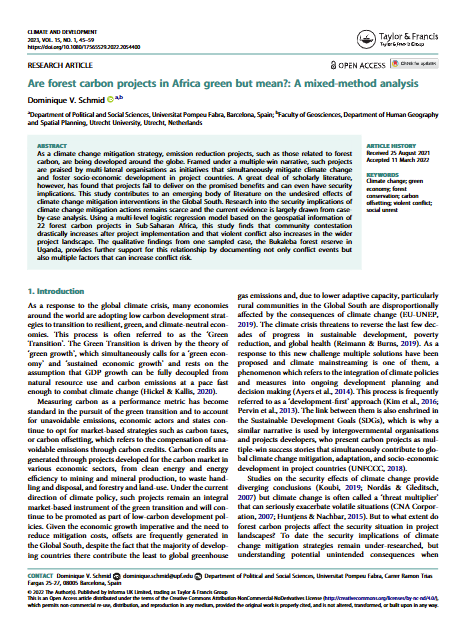Incorporating Land Use Mapping and Participation in Jordan
In this study, analysis of land use and suitability maps for 2 contrasting mountainous ecosystems was used to identify areas where a change from existing to potential land use was required. A socioeconomic survey was carried out to select locations for implementing 2 land management packages with the full participation of farmers.

